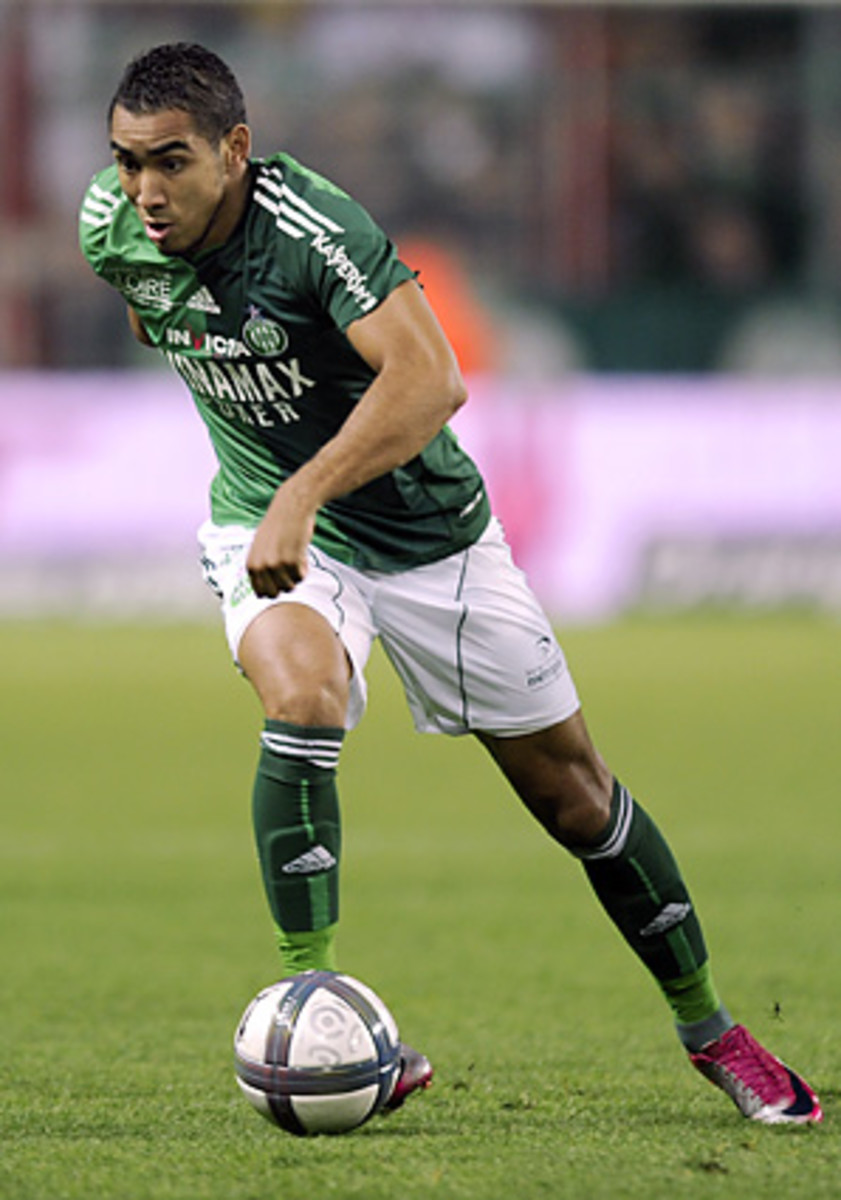Strikes becoming all too synonymous with French players
The unpleasant memories of France's World Cup fiasco were called to mind in recent weeks when two Ligue 1 players went on strike to force moves from their clubs. The first was Stephane Sessegnon, who had fallen out with Antoine Kombouare, his coach at Paris Saint-Germain, and missed training for three weeks as he agitated for a move to Sunderland. It was only after he returned to the fold that PSG agreed a deal with the Premier League side.
Saint-Etienne striker Dmitri Payet did not get his way: the winger, such a revelation in the first half of the season that he became a France international, was wanted by PSG (to replace Sessegnon) while it was reported that Chelsea also bid for him. He chose to miss his team's victory last weekend at Toulouse, and skipped training on Monday -- transfer deadline day -- claiming he was ill.
Saint-Etienne's co-president Roland Romeyer said that Payet's behavior, rather than PSG's lowball bid of €7 million ($9.5M), convinced the club to dig in its heels. "His attitude made us keep him, we will not bow to threats and the wishes of agents," he told the French press, before fining, then forgiving, Payet. "How many 23-year-olds do you know who have not made a mistake?" Romeyer said in L'Equipe a few days later. "This episode is over."
Payet had another disappointment to come: he was omitted from France's squad to face Brazil in a prestige friendly in Paris next Wednesday. "I cannot condone his attitude, it's up to him to change his behavior," France coach Laurent Blanc told a news conference on Thursday.
His was not the only newsworthy name missing from the list: former France captain Patrice Evra, available again after his five-match ban for his part in the World Cup protest against the exclusion of Nicolas Anelka, was also left out.
Before the announcement, France's new Sports Minister Chantal Jouanno tried to turn it into a political issue, telling L'Equipe that Evra and Franck Ribery (currently out injured) should never be picked for France again. "They sullied the French name ... [their selection] would be unacceptable." Fans seemed to agree, with 62 percent of those polled by France Football against an Evra call-up (the figure was up to 68 percent for Anelka, banned for 18 games for allegedly swearing at coach Raymond Domenech during halftime of France's World Cup match against Mexico, something he denies).
The most vocal supporter of Evra's position came from an unlikely source: Eric Abidal, the Barcelona defender who has replaced Evra as first-choice left back. "Only five of the 23 [World Cup players] faced the disciplinary panel, but why not the others as it was a group decision [to go on strike]?" Abidal told France Football this week. "I got brought in and was not punished, and the others did get punished -- so where's the logic in that?"
Abidal also backed Anelka's claim that he never swore at Domenech, and that the Chelsea forward was right to not apologize, as he had done nothing wrong. Evra still says the strike was taken as a unanimous decision and is disappointed that, as captain, he was singled out as a scapegoat by the federation.
But Blanc was clever at his news conference, insisting that Evra's omission was purely a sporting one, and nothing to do with pressure from government or fans. On that basis, it is hard to argue with him. Abidal was outstanding in France's 2-1 win over England last November, and Gael Clichy is a more than adequate understudy. On current form, Evra is not so much better than those two to risk upsetting the spirit in the camp (though it would be Evra's presence and the attention that would bring rather than the player himself, who remains popular, that would change things).
With Abidal now first-choice, Evra's call-up would only have left him on the bench, where, according to the majority of the French sports press, he might not have been a positive influence. It is also Evra's misfortune that Blanc is now blessed in his position: of the eight Champions League quarterfinalists last season, five had Frenchmen at left back (those three plus Lyon's Aly Cissokho and Bordeaux's Benoit Tremoulinas). "The one who stands out for me is Abidal, but I think Evra is the natural number two at left back," former France midfielder Luis Fernandez told RMC Radio.
So where does this leave Evra now? With a future out of the side in the short-term, but he's still only 29 (Abidal is 31) and if his form for Manchester United can return to the level of last season, he can surely expect to add to his 32 international appearances. "Perhaps it's just a bit premature to see him back in the French team, but it's up to him to get his place back," Fernandez added. France's next match is against Croatia in March and, form permitting, Evra could be back as soon as then. Blanc is trying to rebuild the team's confidence and might just want him to stew for another month.
France has always held onto its socialist traditions of protest -- newspapers often aren't delivered due to the latest distributors' strike, while recent protests against pension reform brought the country to a halt -- but this week, the fates of Payet and Evra reminded us that taking action does not always mean getting your way.






